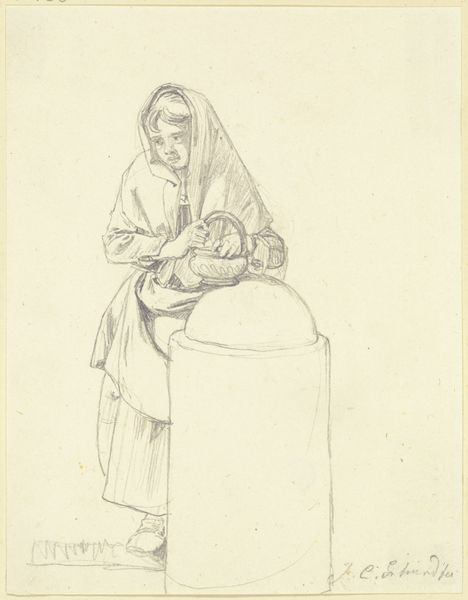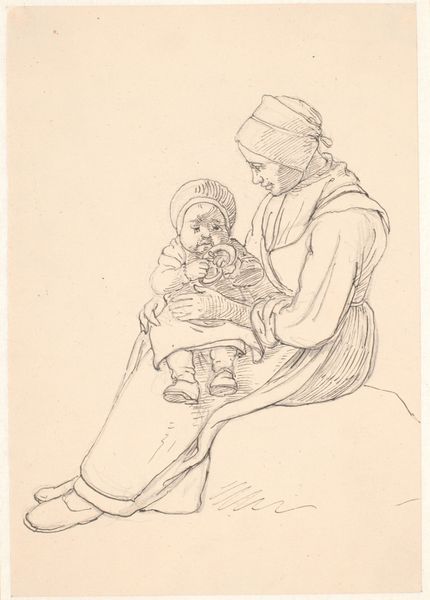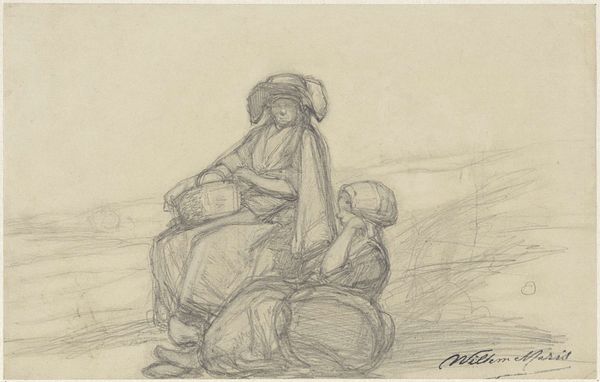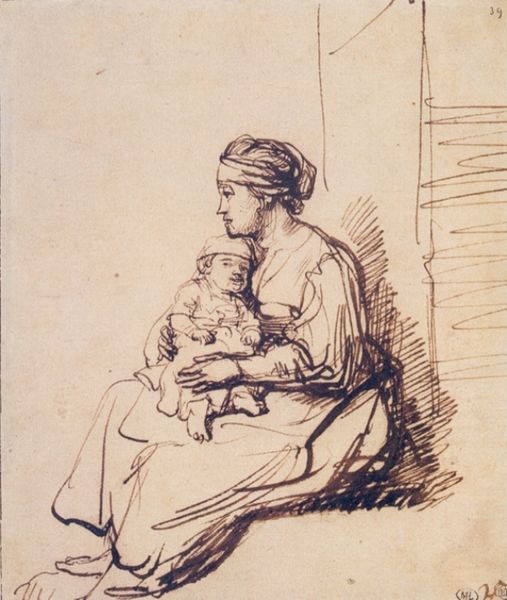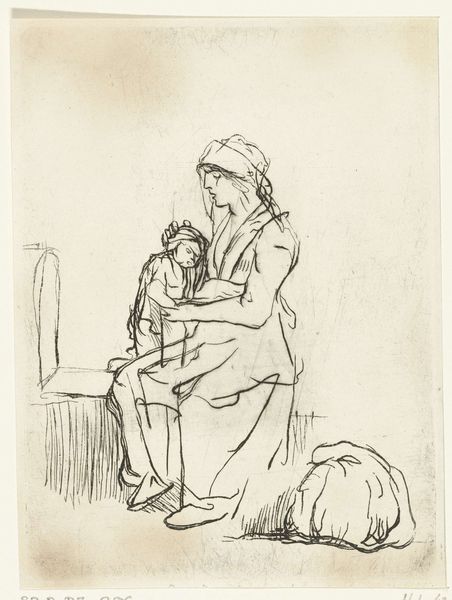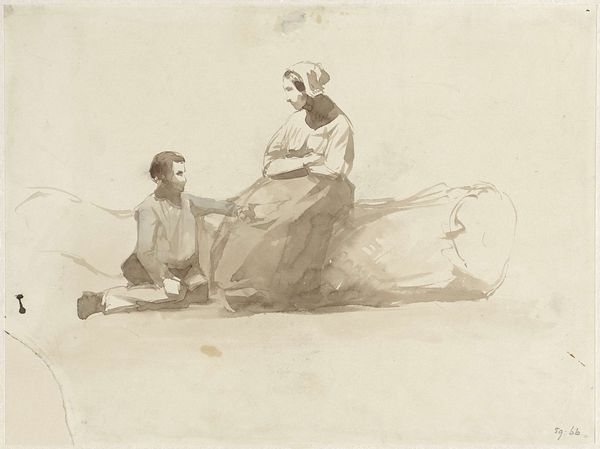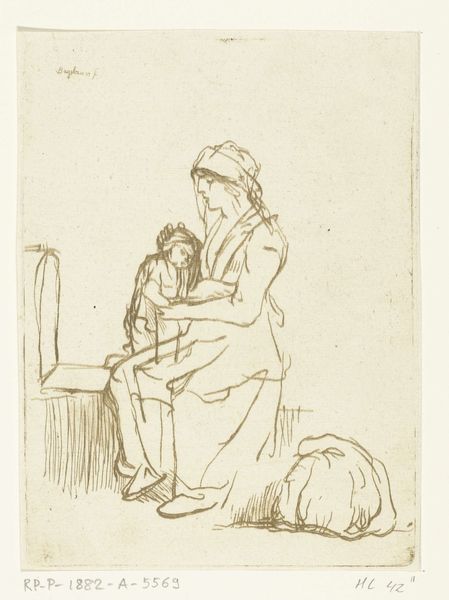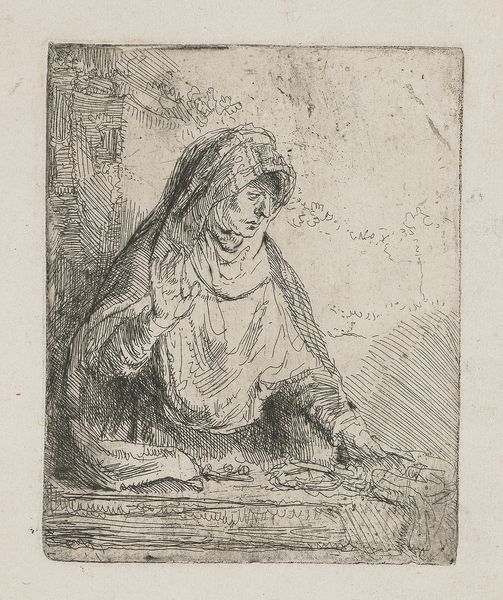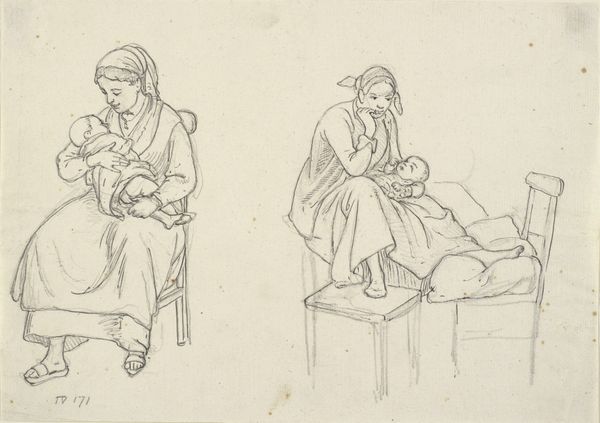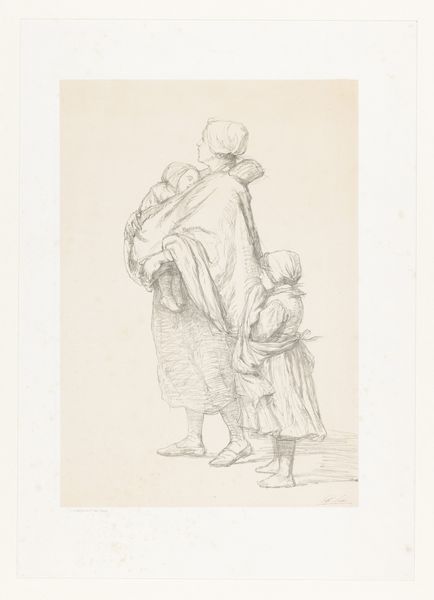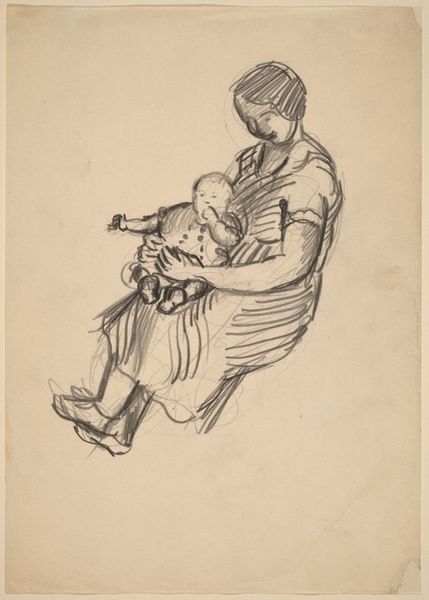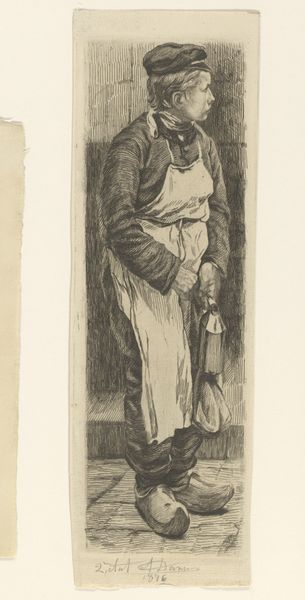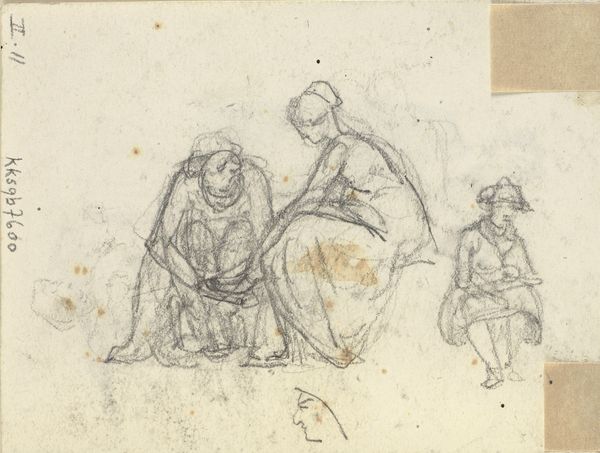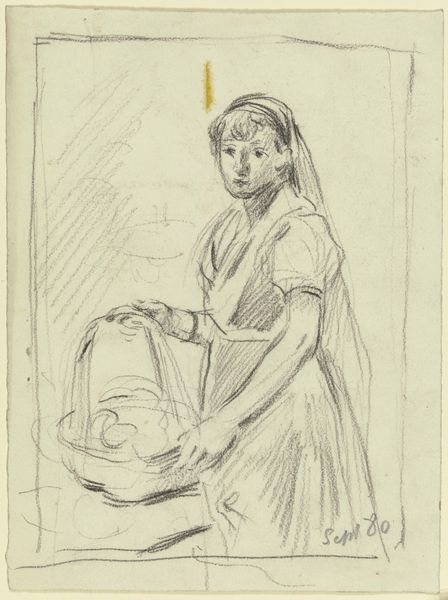
drawing, paper, ink
#
portrait
#
drawing
#
pen sketch
#
pencil sketch
#
figuration
#
paper
#
ink
#
realism
Dimensions: height 63 mm, width 116 mm
Copyright: Rijks Museum: Open Domain
Editor: This is Johannes Bosboom's "Figuurstudie van een zittend meisje," made sometime between 1827 and 1891. It’s a drawing in ink on paper, a quick sketch really. The lines are so immediate. What can you tell me about it? Curator: Looking at this drawing, I’m struck by Bosboom's emphasis on the material realities of everyday life, even within this study. The visible, rapid marks of the ink tell us about the speed of production. Is he capturing a fleeting moment or churning out studies? How might we read the cheapness and accessibility of ink and paper – a commercial grade product rather than fine art material? – in the context of 19th-century industrialization? Editor: That’s fascinating, I hadn’t considered that. I was just focusing on the figure itself. Curator: But the figure can’t be divorced from the mode of its making! Realism, as a movement, engages directly with the representation of ordinary people. What does it mean to render a "study" of a young, possibly working-class, girl? How does Bosboom’s choice of quick, replicable ink sketch democratize artmaking, or simply reinforce a class division by capturing and owning the image of the subject? Editor: So, by using accessible materials and focusing on an ordinary subject, Bosboom might be commenting on class and the accessibility of art itself? Curator: Exactly. The “ordinary” tells a story of how things were made and consumed at this specific moment in history. Editor: That really changes how I see this piece. It’s not just a simple sketch; it’s a statement about society and the means of artistic production. Curator: Indeed, looking beyond just the "who" and "what," asking "how" and "why" illuminates the true depth of a piece like this. Editor: I'll remember that moving forward.
Comments
No comments
Be the first to comment and join the conversation on the ultimate creative platform.
